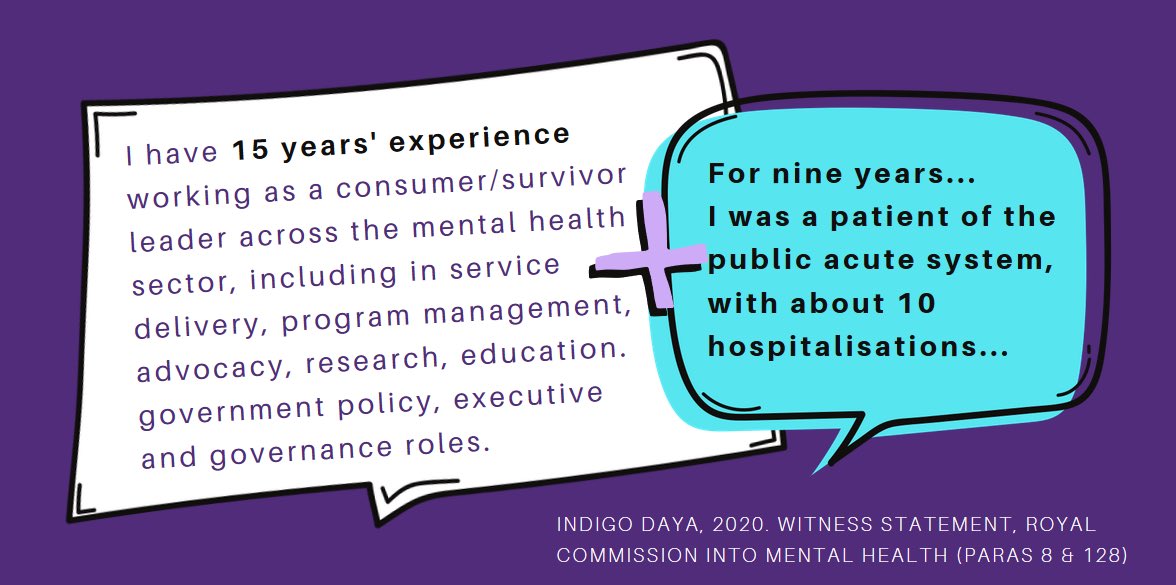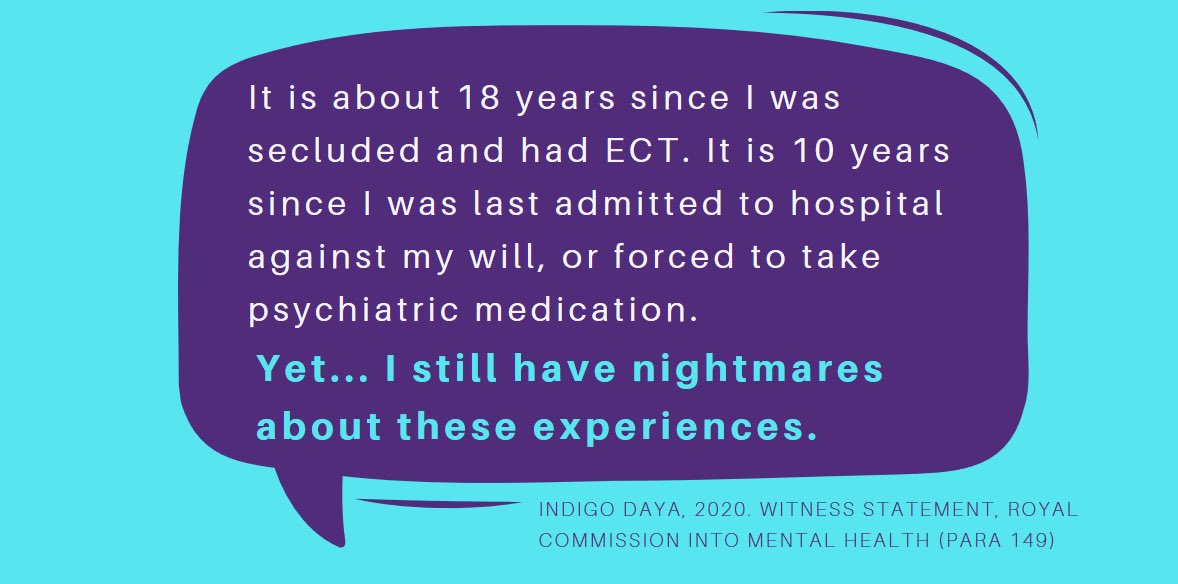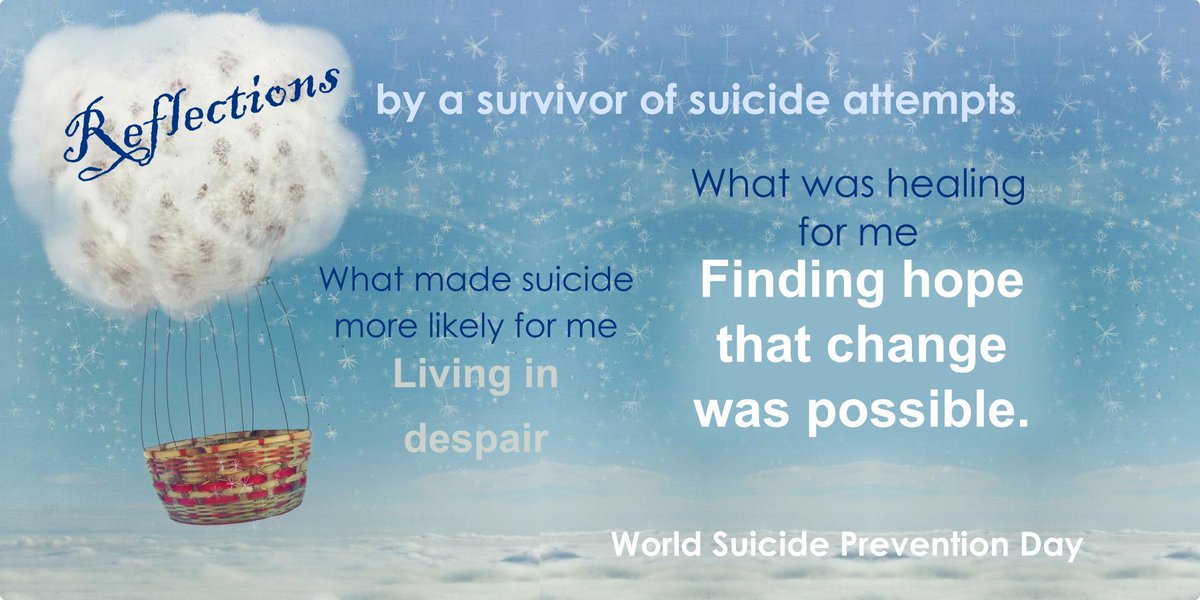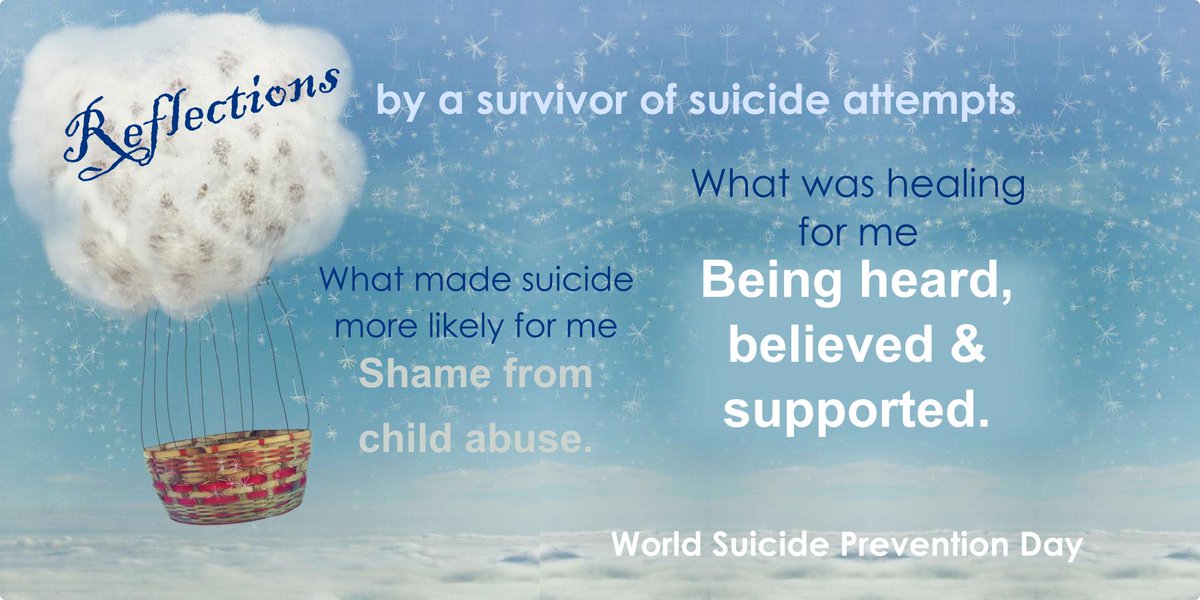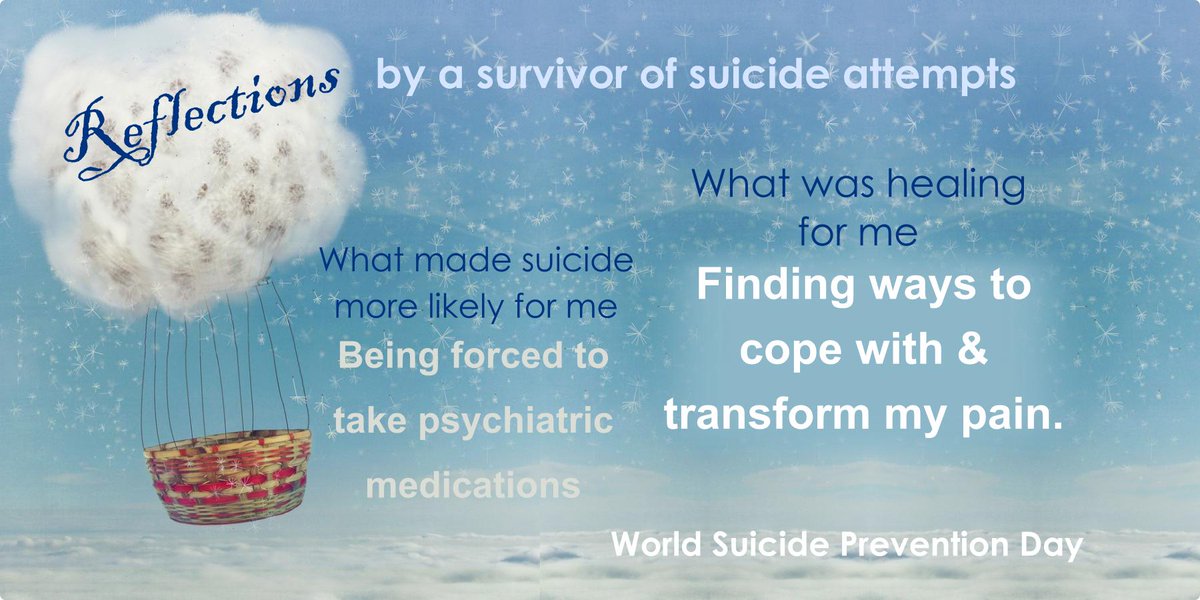
I’ve been thinking a lot about what it means to be an ally to consumers & survivors in #MentalHealth.
Learning from my own lived experience, other survivors & consumers, and other marginalised groups.
Some thoughts...
(thread)
Learning from my own lived experience, other survivors & consumers, and other marginalised groups.
Some thoughts...
(thread)
1. You don’t get to decide if you’re an ally. We do.
2. Good intentions are lovely, but that doesn’t make you ally. Neither does saying the right things.
Your actions are what matter.
Your actions are what matter.
3. Allies do not speak for us. Because we can speak for ourselves.
Yes, that means you. Yes, it means clinicians, and carers, and policy people.
Yes, that means you. Yes, it means clinicians, and carers, and policy people.
4. Allies do not suggest we have no voice.
We have voices, but it’s hard to be heard when you’re all so busy speaking for us.
Or ignoring us.
Or, you know, not even inviting us to the conversation.
That’s not being voiceless. It’s being silenced.
We have voices, but it’s hard to be heard when you’re all so busy speaking for us.
Or ignoring us.
Or, you know, not even inviting us to the conversation.
That’s not being voiceless. It’s being silenced.
5. Allies do not think that they know what’s in our best interests.
Allies know that’s paternalistic and the opposite of self-determination.
Allies know that’s paternalistic and the opposite of self-determination.
6. Allies don’t suggest it’s time to get some ‘fresh voices’.
We know what that means. Getting rid of us once we’ve learned how the system works and become more effective advocates.
Extra voices, more of us, yes. Turning us over every few years, hell no.
We know what that means. Getting rid of us once we’ve learned how the system works and become more effective advocates.
Extra voices, more of us, yes. Turning us over every few years, hell no.
7. Allies ask us how they can be a good ally. It’s the most wonderful question to be asked.
But don’t ask unless you’re prepared to follow through.
But don’t ask unless you’re prepared to follow through.
8. Allyship is a verb. You have to do stuff. You have to take risks. That’s the point.
We take risks, almost every time we speak out, and we have far less protection than you do if there’s pushback.
We take risks, almost every time we speak out, and we have far less protection than you do if there’s pushback.
9. Allies don’t tell us about your guilt for all the terrible things you’ve done in your work. We know about the things, we survived them.
We’ve got enough going on with our own survival. We carry your guilt as well.
Also, your guilt doesn’t help us. But your actions might.
We’ve got enough going on with our own survival. We carry your guilt as well.
Also, your guilt doesn’t help us. But your actions might.
10. Allies unlock the doors to spaces of decision making, so we can get in.
They refuse to participate if we’re not there, in numbers, with respect & fair pay.
While you’re at it, why not leave the ward doors unlocked too. Misplace the keys. Go on.
They refuse to participate if we’re not there, in numbers, with respect & fair pay.
While you’re at it, why not leave the ward doors unlocked too. Misplace the keys. Go on.
11. Allies read survivor literature.
There’s lots of it. They learn about our experiences & perspectives.
There’s lots of it. They learn about our experiences & perspectives.
12. Allies don’t just include us in their projects & their great ideas.
We’re not here to tick your boxes. We’re here to totally transform things, and we expect at least some space to pursue our great ideas.
Allies channel resources our way so we can lead our own projects.
We’re not here to tick your boxes. We’re here to totally transform things, and we expect at least some space to pursue our great ideas.
Allies channel resources our way so we can lead our own projects.
13. Allies seek out diverse and critical voices. If you only invite consumers who talk about how great the system is, and how much psychiatry helped them, you’re serving the system, not survivors.
Welcome the angry, disgruntled, hurt survivors.
Welcome the angry, disgruntled, hurt survivors.
14. Don’t invite just one of us into a space. Like, not ever.
It’s tokenistic. It’s unsafe. It’s an awful experience. Make sure we’re 50% of the group, or more.
It’s tokenistic. It’s unsafe. It’s an awful experience. Make sure we’re 50% of the group, or more.
15. Allies don’t take the ideas & concepts we advocate for, like recovery, coproduction or rights-based practice, then change the meaning to suit themselves.
Allies say “hey, that’s a great idea, come join us, lead us, so we can make it happen.”
Allies say “hey, that’s a great idea, come join us, lead us, so we can make it happen.”
16. There are so many more things I could say here. But I’m guessing others will very happily enrich this thread with their own expertise.
And to all you actual allies out there: THANK YOU.
✊
And to all you actual allies out there: THANK YOU.
✊
Spelling ack! Should say we *can’t* carry...
• • •
Missing some Tweet in this thread? You can try to
force a refresh

